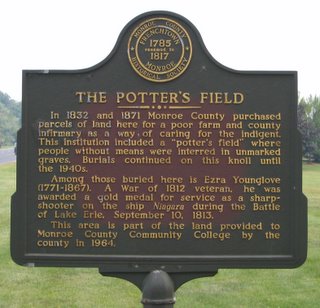Captain Daniel Springer was a soldier in Butler's Rangers.
| Source |
In the war of 1812 Captain Springer was at Detroit, and in command of a company of the First Middlesex. ... it appears, "that Captain Springer exerted himself in defending the Province by actively performing his duty on all occasions. He therefore became as usual extremely obnoxious to all the enemy and the disaffected, a party of whom seized him on the 1st February, 1814, and after binding him, took his own horses and sleigh, and placing him in it, carried him to Kentucky. Shortly after his departure, his family was obliged to move to the Grand River. He returned in time to share in the glory of the battle of the Falls." [Source]
From this website:
SPRINGER, Capt. Daniel. This Company served July to December 1812, 25 April to 24 May 1814 and 25 June to 24 July 1814, received Land Claim Certificate Unit Flank Company 1st Regiment Middlesex Militia, Vol 24, File 79, pages 173-175. Born September 1763 in Albany, New York; died June 15, 1826, in Delaware Township; buried in Tiffany Cemetery, Delaware; married Ruth Fairchild. Was Captain of 1st Regiment Middlesex Militia, elevated to Lt. Col. In 1812. Taken prisoner by an American raiding party under command of Andrew Westbrook, of Delaware, an old neighbour. Prisoner at Chilcothe, Kentucky but returned to Canada to take part in battle of Lundy’s Lane.














